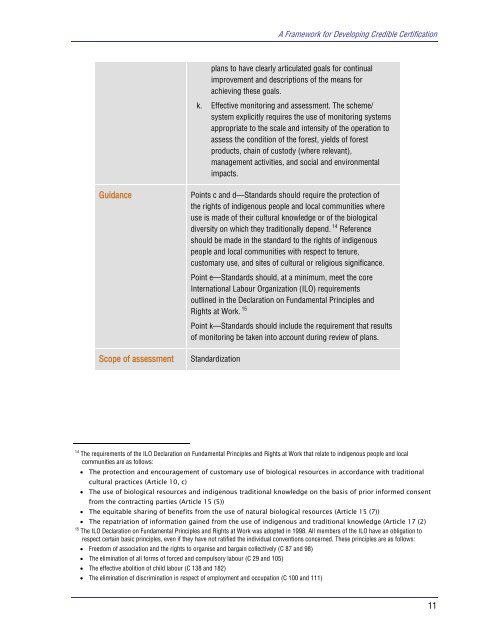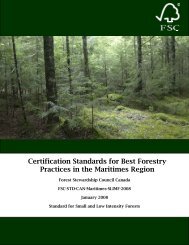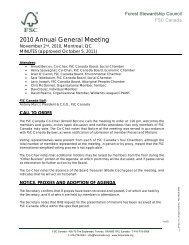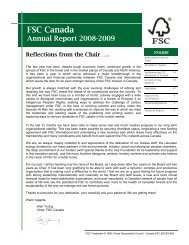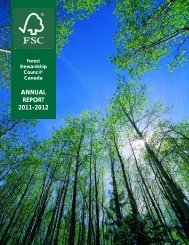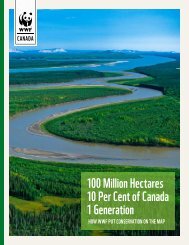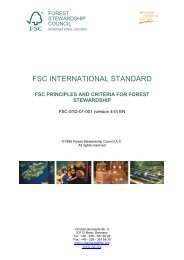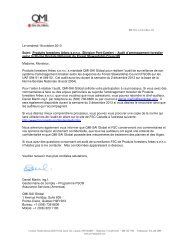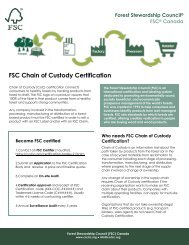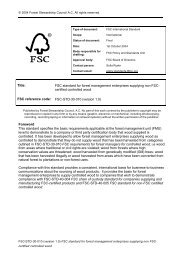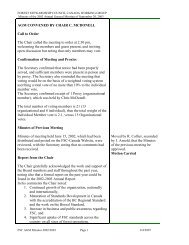WWF/World Bank Forest Certification Assessment Guide
WWF/World Bank Forest Certification Assessment Guide
WWF/World Bank Forest Certification Assessment Guide
- No tags were found...
You also want an ePaper? Increase the reach of your titles
YUMPU automatically turns print PDFs into web optimized ePapers that Google loves.
A Framework for Developing Credible <strong>Certification</strong>plans to have clearly articulated goals for continualimprovement and descriptions of the means forachieving these goals.k. Effective monitoring and assessment. The scheme/system explicitly requires the use of monitoring systemsappropriate to the scale and intensity of the operation toassess the condition of the forest, yields of forestproducts, chain of custody (where relevant),management activities, and social and environmentalimpacts.GuidanceScope of assessmentPoints c and d—Standards should require the protection ofthe rights of indigenous people and local communities whereuse is made of their cultural knowledge or of the biologicaldiversity on which they traditionally depend. 14 Referenceshould be made in the standard to the rights of indigenouspeople and local communities with respect to tenure,customary use, and sites of cultural or religious significance.Point e—Standards should, at a minimum, meet the coreInternational Labour Organization (ILO) requirementsoutlined in the Declaration on Fundamental Principles andRights at Work. 15Point k—Standards should include the requirement that resultsof monitoring be taken into account during review of plans.Standardization14 The requirements of the ILO Declaration on Fundamental Principles and Rights at Work that relate to indigenous people and localcommunities are as follows:• The protection and encouragement of customary use of biological resources in accordance with traditionalcultural practices (Article 10, c)• The use of biological resources and indigenous traditional knowledge on the basis of prior informed consentfrom the contracting parties (Article 15 (5))• The equitable sharing of benefits from the use of natural biological resources (Article 15 (7))• The repatriation of information gained from the use of indigenous and traditional knowledge (Article 17 (2)15 The ILO Declaration on Fundamental Principles and Rights at Work was adopted in 1998. All members of the ILO have an obligation torespect certain basic principles, even if they have not ratified the individual conventions concerned. These principles are as follows:• Freedom of association and the rights to organise and bargain collectively (C 87 and 98)• The elimination of all forms of forced and compulsory labour (C 29 and 105)• The effective abolition of child labour (C 138 and 182)• The elimination of discrimination in respect of employment and occupation (C 100 and 111)11


